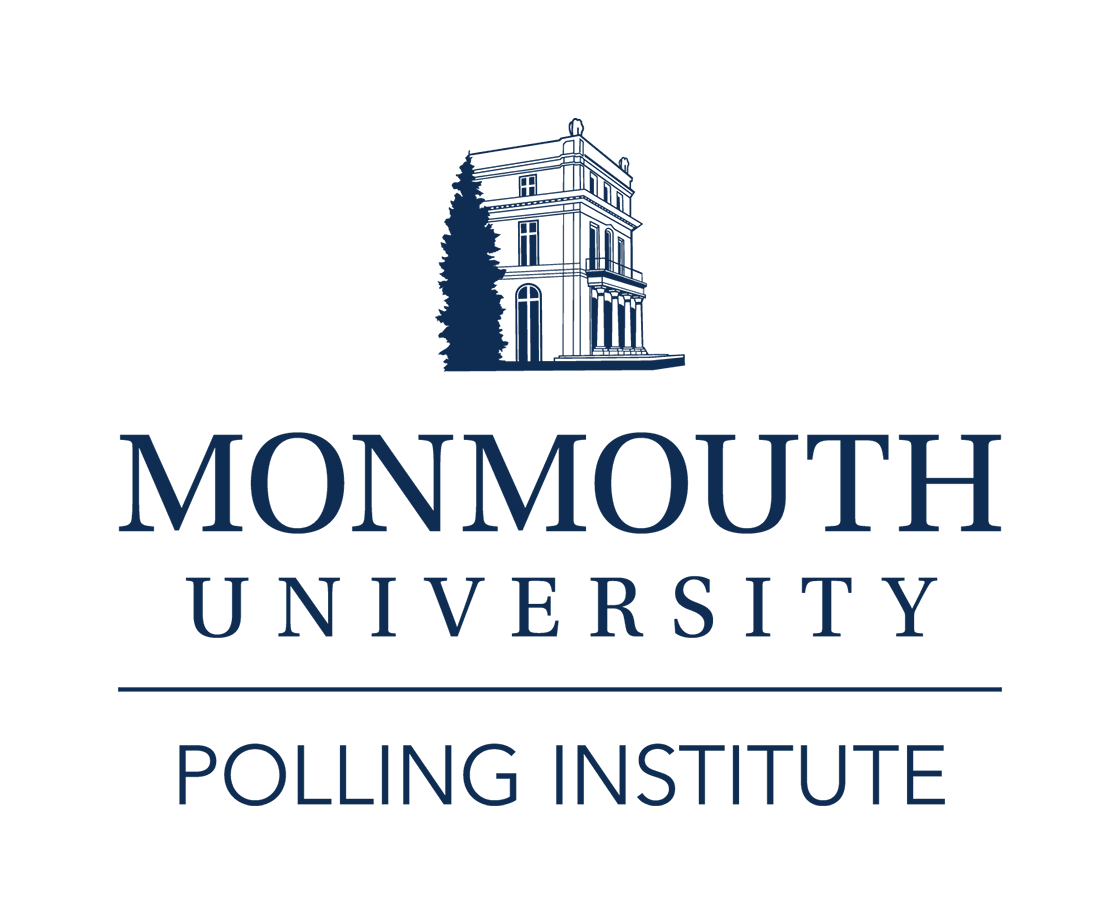West Long Branch, NJ – Hillary Clinton’s lead in the Democratic field has ticked up to 48% after the first debate. When Joe Biden is removed from the equation, though, her support increases to a clear majority. The latest national Monmouth University Poll of Democrats and Democratic-leaning voters suggests that the party’s first presidential debate helped the front-runner.
Hillary Clinton currently has the support of 48% of Democrats and Democratic-leaning voters nationwide, which is up from 42% last month. Bernie Sanders gets 21%, which is basically unchanged from his 20% support in September. Undeclared candidate Joe Biden has 17% support, down from 22% last month. Jim Webb and Larry Lessig each get 1%, while Martin O’Malley and Lincoln Chafee each earn less than 1%.
Biden supporters were asked who they would support if the Vice President does not enter the race, and most swing toward Clinton, giving her a formidable 57% to 24% lead over Sanders. Democratic voters continue to show some interest in having Biden enter the race, though. In addition to the 17% who support him now, 10% say they would be very likely to switch their vote to Biden and another 31% would be somewhat likely. Further analysis of these results indicates that even if all those very likely to support Biden actually switch their vote, Clinton would maintain a lead of 42% to 27% for Biden, with Sanders falling to third place at 20%.
“The specter of a Biden candidacy still hangs over this race, but Clinton can take comfort that she has appeared to win back some support with a solid debate performance,” said Patrick Murray, director of the independent Monmouth University Polling Institute in West Long Branch, NJ.
While Sanders did well with instant-reaction focus groups and on social media immediately after the debate, Clinton actually appears to have gotten more positive traction with Democrats who did not see the debate. Just over half (52%) of Democratic voters viewed at least some of the debate, including 1-in-5 who watched the entire event. Sanders voters (65%) are more likely than Clinton supporters (47%) to report watching at least part of the debate.
Among those who saw at least part of the debate, 34% say Bernie Sanders surprised them with a better than expected performance and 29% say the same about Hillary Clinton. But among the nearly half of Democratic voters who did not see any of the debate, 26% are under the impression that Clinton did better than expected while 16% say the same of Sanders.
At the opposite end of the spectrum, 19% of debate watchers say that Lincoln Chafee did worse than expected and 16% say the same about Jim Webb. Another 10% of Democratic viewers say Clinton did worse than expected, 6% say the same of Martin O’Malley, and 5% say the same of Sanders. Among those who did not watch the debate, very few say that any of the five candidates did worse than expected, although 10% do name Clinton.
Democratic voters are divided on whether there will be enough debates before voting begins in February. Just under half (44%) say there are enough debates scheduled, 37% say there are not, and 16% have no opinion. Clinton voters are more likely to be satisfied (52%) with the debate schedule than not (32%), while Sanders voters are split between preferring more debates (41%) and feeling feel there are enough already scheduled (35%).
The debate has given a slight boost in name recognition to all the participants except the already well-known Clinton. However, Clinton’s personal rating did tick up a bit. It now stands at 77% favorable and 18% unfavorable among Democratic voters, up from 71% – 17% last month. Bernie Sanders’s rating stands at 60% favorable and 11% unfavorable, compared to 41% – 14% last month. The number of Democrats having no opinion of Sanders went down from 45% in September to 28% currently.
Martin O’Malley saw his rating improve slightly to 23% favorable and 17% unfavorable from 13% – 14% last month. However, Jim Webb saw his rating go down to 15% favorable and 25% unfavorable from 13% – 14% last month. Lincoln Chafee’s rating also declined to 9% favorable and 24% unfavorable from 7% – 14%. Still, 6-in-10 Democratic voters have no opinion of these three candidates. Larry Lessig, who entered the race last month but did not qualify for the debate stage, receives a rating of 8% favorable, 14% unfavorable, and 77% no opinion.
Vice President Joe Biden holds a 73% favorable and 9% unfavorable rating among Democratic voters, which is basically unchanged from his 71% – 9% rating last month. Biden’s favorable rating is similar among white Democrats (74%) and among black and Hispanic Democrats (72%). Clinton holds a 71% favorable rating among whites and an 87% favorable rating among black and Hispanic voters in her party. Sanders has a 70% favorable rating among whites and a 42% favorable rating among black and Hispanic Democrats.
The Monmouth University Poll was conducted by telephone from October 15 to 18, 2015 with 1,012 adults in the United States. This release is based on a voter sample of 340 registered voters who identify themselves as Democrats or lean toward the Democratic Party. This voter sample has a margin of error of ± 5.3 percent. The poll was conducted by the Monmouth University Polling Institute in West Long Branch, NJ.
DATA TABLES
The questions referred to in this release are as follows:
(* Some columns may not add to 100% due to rounding.)
1. I know the 2016 election is far away, but who would you support for the Democratic nomination for president if the candidates were – [NAMES WERE ROTATED]? [BIDEN VOTERS were also asked: If Biden decided not to run, would you support?]
| Oct. 2015 without Biden | October 2015 | September 2015 | August 2015 | July 2015 | June 2015 | April 2015 | |
| Joe Biden | n/a | 17% | 22% | 12% | 13% | 12% | 16% |
| Lincoln Chafee | 1% | <1% | 0% | 0% | 0% | 0% | n/a |
| Hillary Clinton | 57% | 48% | 42% | 52% | 51% | 57% | 60% |
| Larry Lessig | 1% | 1% | n/a | n/a | n/a | n/a | n/a |
| Martin O’Malley | 1% | <1% | 1% | 2% | 1% | 1% | 2% |
| Bernie Sanders | 24% | 21% | 20% | 16% | 17% | 12% | 7% |
| Jim Webb | 1% | 1% | 1% | 2% | 1% | 2% | 1% |
| (VOL) Other | 0% | 0% | 0% | 2% | 0% | 0% | 0% |
| (VOL) No one | 4% | 3% | 4% | 3% | 2% | 2% | 2% |
| (VOL) Undecided | 12% | 9% | 10% | 11% | 15% | 14% | 12% |
| Unwtd N | 340 | 340 | 339 | 429 | 357 | 350 | 356 |
2. I’m going to read you a few names of people who are running or might run for president in 2016. Please tell me if your general impression of each is favorable or unfavorable, or if you don’t really have an opinion. [NAMES WERE ROTATED]
| Favorable | Unfavorable | No opinion | |
| Vice President Joe Biden |
73% |
9% |
18% |
| –September 2015 |
71 |
9 |
21 |
| –August 2015 |
67 |
14 |
19 |
| –July 2015 |
67 |
17 |
16 |
| –June 2015 |
62 |
18 |
20 |
| –April 2015 |
65 |
22 |
14 |
| –December 2014 |
46 |
32 |
22 |
| Former Rhode Island Governor Lincoln Chafee |
9% |
24% |
67% |
| –September 2015 |
7 |
14 |
79 |
| –August 2015 |
8 |
11 |
81 |
| –July 2015 |
9 |
13 |
78 |
| –June 2015 |
9 |
18 |
74 |
|
–Prior polls |
n/a |
n/a |
n/a |
| Former Secretary of State Hillary Clinton |
77% |
18% |
6% |
| –September 2015 |
71 |
17 |
12 |
| –August 2015 |
71 |
17 |
13 |
| –July 2015 |
74 |
17 |
9 |
| –June 2015 |
78 |
12 |
10 |
| –April 2015 |
76 |
16 |
8 |
| –December 2014 |
82 |
11 |
7 |
| (Question 2 continued) | Favorable | Unfavorable | No opinion |
| Law Professor Larry Lessig |
8% |
14% |
77% |
|
–Prior polls |
n/a |
n/a |
n/a |
| Former Maryland Governor Martin O’Malley |
23% |
17% |
60% |
| –September 2015 |
13 |
14 |
72 |
| –August 2015 |
13 |
9 |
78 |
| –July 2015 |
13 |
14 |
72 |
| –June 2015 |
13 |
18 |
70 |
| –April 2015 |
21 |
12 |
66 |
| –December 2014 |
10 |
13 |
77 |
| Vermont Senator Bernie Sanders |
60% |
11% |
28% |
| –September 2015 |
41 |
14 |
45 |
| –August 2015 |
42 |
12 |
45 |
| –July 2015 |
36 |
12 |
51 |
| –June 2015 |
29 |
18 |
54 |
| –April 2015 |
30 |
12 |
58 |
| –December 2014 |
22 |
13 |
65 |
| Former Virginia Senator Jim Webb |
15% |
25% |
60% |
| –September 2015 |
13 |
14 |
73 |
| –August 2015 |
16 |
11 |
73 |
| –July 2015 |
13 |
15 |
71 |
| –June 2015 |
9 |
20 |
71 |
| –April 2015 |
14 |
18 |
68 |
| –December 2014 |
11 |
14 |
75 |
|
|
3. Joe Biden has not yet indicated whether he intends to run. If Biden does get into the race, how likely would you be to consider supporting him for the nomination over your current choice – very likely, somewhat likely, not too likely, or not at all likely?
| Oct. 2015 | Sept. | July 2015 | |
| Already Biden Voters (from Q1) | 17% | 22% | 13% |
| Very likely | 10% | 7% | 12% |
| Somewhat likely | 31% | 34% | 31% |
| Not too likely | 20% | 16% | 19% |
| Not at all likely | 18% | 16% | 19% |
| (VOL) Don’t know | 4% | 5% | 6% |
4. Did you watch any of the Democratic candidates’ debate from Tuesday night, or have you not seen any of it? [If YES: Did you watch the entire debate, watch part of it, or have you just seen clips of it?]
| Oct. 2015 | |
| Yes, watched entire debate | 20% |
| Yes, watched part of it | 21% |
| Yes, just seen clips | 11% |
| No, not seen any of it | 48% |
5. Based on what you have seen or heard of the debate, which candidate, if anyone, surprised you by doing much better than expected? [Note: Results add to more than 100% because multiple responses were accepted]
| Oct. 2015 | |
| Lincoln Chafee | 1% |
| Hillary Clinton | 27% |
| Martin O’Malley | 6% |
| Bernie Sanders | 25% |
| Jim Webb | 3% |
| No one | 25% |
| (VOL) Don’t know | 18% |
6. And which candidate, if anyone, surprised you by doing much worse than expected? [Note: Results add to more than 100% because multiple responses were accepted]
| Oct. 2015 | |
| Lincoln Chafee | 10% |
| Hillary Clinton | 10% |
| Martin O’Malley | 3% |
| Bernie Sanders | 4% |
| Jim Webb | 10% |
| No one | 37% |
| (VOL) Don’t know | 29% |
7. Based on what you have heard, will there be enough or not enough debates with the Democratic candidates before voting starts in February?
| Oct. 2015 | |
| Enough | 44% |
| Not enough | 37% |
| (VOL) Too many | 3% |
| (VOL) Don’t know | 16% |
The Monmouth University Poll was sponsored and conducted by the Monmouth University Polling Institute from October 15 to 18, 2015 with a national random sample of 1,012 adults age 18 and older. This includes 712 contacted by a live interviewer on a landline telephone and 300 contacted by a live interviewer on a cell phone, in English. Monmouth is responsible for all aspects of the survey design, data weighting and analysis. Final sample is weighted for region, age, education, gender and race based on US Census information. Data collection support provided by Braun Research (field) and SSI (RDD sample). The results in this poll release are based on a subsample of 340 registered voters who identify themselves as Democrats or lean toward the Democratic Party. For results based on this sample, one can say with 95% confidence that the error attributable to sampling has a maximum margin of plus or minus 5.3 percentage points (unadjusted for sample design). Sampling error can be larger for sub-groups (see table below). In addition to sampling error, one should bear in mind that question wording and practical difficulties in conducting surveys can introduce error or bias into the findings of opinion polls.
POLL DEMOGRAPHICS (weighted) FULL SAMPLE – ALL ADULTS | ||
| 49% Male | 32% 18-34 | 66% White |
| 51% Female | 37% 35-54 | 12% Black |
| 32% 55+ | 15% Hispanic | |
7% Asian/Other | ||
POLL DEMOGRAPHICS (weighted) DEMOCRAT VOTERS ONLY | ||
| 42% Male | 24% 18-34 | 62% White |
| 58% Female | 34% 35-54 | 21% Black |
| 42% 55+ | 12% Hispanic | |
6% Asian/Other | ||
Click on pdf file link below for full methodology and results by key demographic groups.




